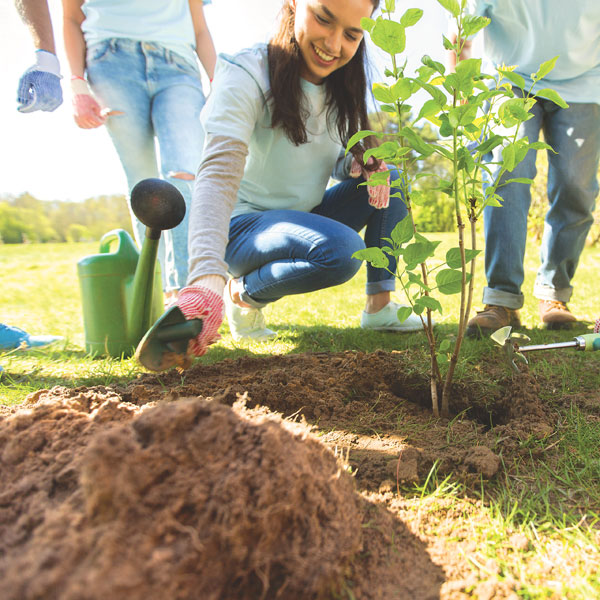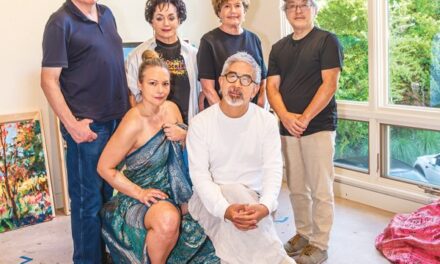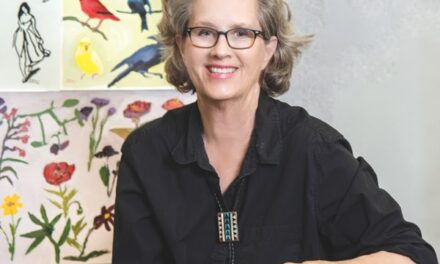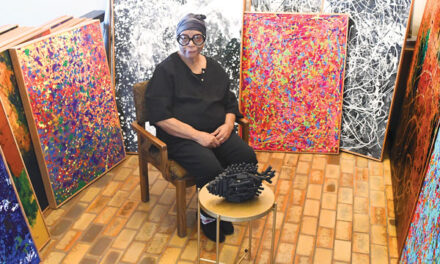Gardening myths are rooted in folklore and legend. Deceptive and misleading, gardening myths swing from harmful to amusing. Either way, science and research are ignored for a fanciful tale or preposterous concoction.
For instance, an ant swarm is necessary for peonies to bloom. Not true. Ants are attracted by the bud’s sweet secretions and have no blooming superpowers.
Planting a bare butt on soil to test for the perfect temperature is a classic farmer’s tale. If the soil feels “comfortable” and neighbors have not called the police, time to plant! If you must test with a bare behind, get a second opinion from a more reliable soil thermometer.

The late Jerry Baker, a PBS regular during Sacramento KVIE pledge drives, insisted beer, mouthwash and baby shampoo solved garden problems. His homemade tonics, like Buzz Buster Lemonade for pesky mosquitoes, were hailed as genius or quackery. Personally, I can think of better uses for beer than an active ingredient in home-brewed pesticides.
Baker authored several books, including “Talk to Your Plants.” I know serious gardeners who believe talking to plants can perform miracles. Not saying it works. Am saying a few bizarre practices may have a shred of truth—or dumb luck. An overwhelming majority are bogus.
Winter storms toppled too many drought-stressed trees in Sacramento. When replacing trees in our neighborhoods this spring, avoid the myths. Don’t add soil amendments to the planting hole. That’s a myth. Backfill with the native soil you removed to dig the hole.
Adding amendments, like peat moss and compost, may sound beneficial, but scientific studies show it can cause drainage and nutrient problems. Incorporating amendments in a heavy clay soil tree-planting hole can cause what is sometimes called the “bathtub effect.” The amended hole holds water and triggers root rot.
Once the new tree is planted in native soil, spread an organic mulch on the soil surface. It will decompose and improve the surrounding soil.
When shopping for replacements, look for trees in smaller containers, like 5- or 10-gallon. The myth is the larger the tree, the faster and healthier it will grow. That’s a big nope. Larger trees, which cost more, are often out of balance with more top growth than the root ball can handle. Smaller trees will likely grow faster and suffer less from stress.
It’s a common belief that root systems penetrate deep into the soil. Wrong. Scientific research has proven 90% of tree roots are no deeper than 18 inches. Roots can extend outward as much as twice the height of the tree! So be careful digging around trees and ensure irrigation reaches to the end of the canopy and beyond.
Misting most indoor plants does little to nothing for the hoped-for humidity benefit. Like a steamy shower, the humidity is there when you step out, but gone soon after. Orchids and air plants are the exception. Both collect water from the air. A bit of mist is a drink.
Mixing up homemade insecticidal soap using a squeeze of dish soap may put plants in harm’s way. In fact, blasting plants with a dish soap and water mixture could kill some plants and beneficial insects.
Dish soap is chemically formulated to cut grease and clean plates and flatware, not eliminate aphid, whitefly and mealybugs. It may contain fragrances and bleach, which can harm plants.
Insecticidal soaps from the nursery are formulated to target plant pests. Think twice about reaching for Palmolive. Choose a product on the nursery shelf instead.
Don’t trust online solutions for gardeners in New Jersey or other regions vastly different from Sacramento. Add “cooperative extension” to online searches or ask a certified nursery professional, certified arborist, or master or consulting rosarian.
Choose science and knowledge over myths and misinformation. Happy plants, happy gardener.
Dan Vierria is a University of California Cooperative Extension Master Gardener for Sacramento County. He can be reached at masterg29@gmail.com. For answers to gardening questions, contact the UCCE Master Gardeners at (916) 876-5338, email mgsacramento@ucanr.edu or visit sacmg.ucanr.edu. Follow us on Facebook, Twitter and Instagram: @insidesacramento.
















